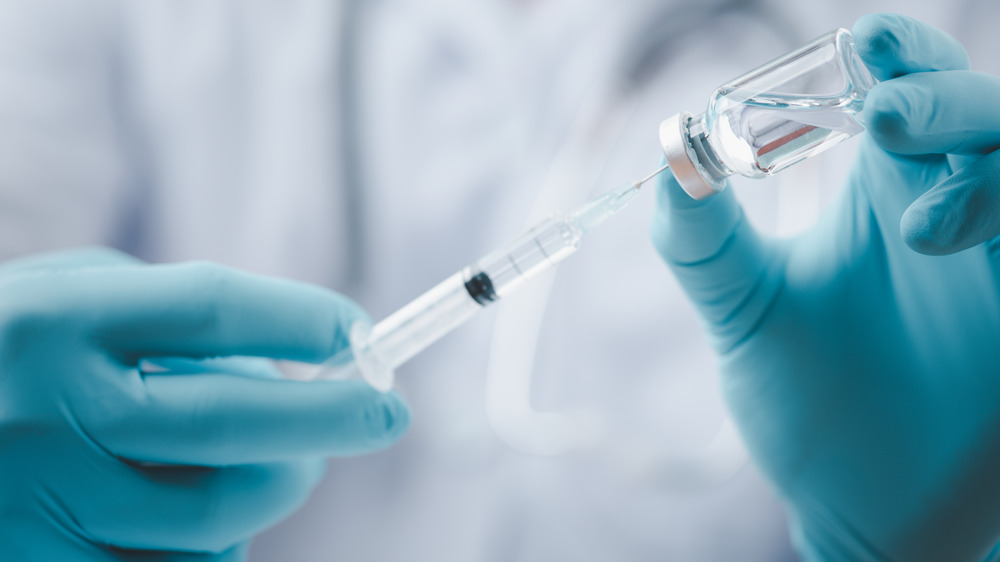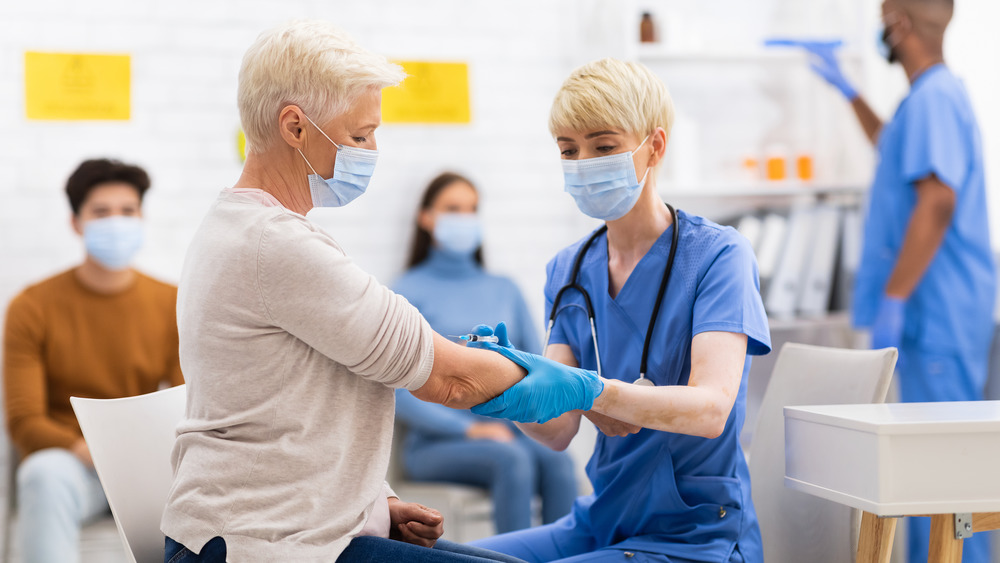Should You Still Get Vaccinated If You're Recovered From COVID-19?
If you've been infected with COVID-19 and have since recovered from the virus, you still need to get vaccinated, according to the Centers for Disease Control and Prevention. While the risk of reinfection is relatively low within the first 90 days of contracting the virus, it is still uncertain exactly how long natural immunity can last (via Health).
The level of immunity is dependent on the amount of antibodies your immune system creates, which varies from person to person and is determined by the severity of your symptoms. "Higher levels of neutralizing antibodies provide better protection against new infection," Dr. Stephen Russell, CEO and co-founder of Imanis Life Sciences, told Health. "More severe symptoms of infection often lead to higher levels of neutralizing antibodies, while less severe symptoms may lead to lower or no measurable neutralizing antibody production."
While one study published in Immunity found that people who had recovered from COVID-19 remained immune between five and seven months after infection, another study published in the New England Journal of Medicine concluded that antibodies were present for up to six months. Since experts do not know exactly how long someone is protected from getting sick again, it is important to get vaccinated whenever you are eligible.
COVID-19 vaccine may strengthen immunity
In addition to preventing reinfection, getting vaccinated may also help strengthen immunity against COVID-19. In other words, if you've already recovered from COVID-19, the vaccine will essentially enhance your natural immunity against the virus (via Popular Science). That's because the Pfizer-BioNTech and Moderna vaccines generate a better immune response than an actual infection would, causing your immune system to create higher levels of neutralizing antibodies, which help protect against reinfection.
"Scientists went in and looked at which part of the virus is the most important for the body's defenses to block in order to prevent infection, and they made the vaccine just against that part," Dr. Ellen Foxman, an immunologist at the Yale School of Medicine, told Popular Science. "So it's really engineered to elicit a protective immune response." The vaccine can also decrease the risk of transmitting the virus to someone else. So if you have previously had COVID-19, there are no downsides to getting vaccinated. Just be sure to wait until at least 90 days after infection.


